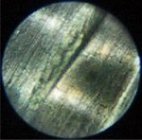Hi. Just joined the forum today after taking a look at various posts. I have to admit, I'm impressed with the maturity and the no-nonsense subject matter regarding questions and answers I've seen here. I've been to many forums and most of them are full of 'know-it-alls' who don't know as much as they let on. I see none of that here.
With that I'd like to ask a question of great importance to me. I checked the search site and was unsuccessful.
I'm into target shooting and am striving to constantly improve my shooting skills. I don't think I will ever be satisfied with my shooting skill, which is why I am contemplating the following. I own a custom .300 WM with a heavy stainless. It is a trued weapon. I WILL NOT leave the barrel dirty or fouled. After each shoot I clean the rifle meticulously within a matter of a couple of hours. I have discovered it takes 8 fouling shots for my groups to tighten. I've learned this is actually from the residue of gun oil left in the barrel interfering with the internal ballistics until it is burned off. I do dry patch after oiling the barrel and a few times again before firing, but the fliers remain. Someone suggested prior to firing, to run a patch of 91% rubbing alcohol through the bore and dry patch it to remove all residue and fire it dry. I tried this once and it worked. However, I've been told by many that firing a sterile barrel is harmful to the barrel and dramatically increases the wear to the point it may wear out in as little as 500 rounds! Others have told me there is no harm. I contacted the manufacturer and have not received a response yet.
Can anyone tell me with certainty if this is a bad idea? Remember, I do not believe leaving my rifle dirty (fouled) is beneficial (no different than leaving any other piece of mechanical equipment dirty) and would rather have to fire a few fouling shots before resorting to storing a dirty rifle.
Thanks in advance.
Chuck.
With that I'd like to ask a question of great importance to me. I checked the search site and was unsuccessful.
I'm into target shooting and am striving to constantly improve my shooting skills. I don't think I will ever be satisfied with my shooting skill, which is why I am contemplating the following. I own a custom .300 WM with a heavy stainless. It is a trued weapon. I WILL NOT leave the barrel dirty or fouled. After each shoot I clean the rifle meticulously within a matter of a couple of hours. I have discovered it takes 8 fouling shots for my groups to tighten. I've learned this is actually from the residue of gun oil left in the barrel interfering with the internal ballistics until it is burned off. I do dry patch after oiling the barrel and a few times again before firing, but the fliers remain. Someone suggested prior to firing, to run a patch of 91% rubbing alcohol through the bore and dry patch it to remove all residue and fire it dry. I tried this once and it worked. However, I've been told by many that firing a sterile barrel is harmful to the barrel and dramatically increases the wear to the point it may wear out in as little as 500 rounds! Others have told me there is no harm. I contacted the manufacturer and have not received a response yet.
Can anyone tell me with certainty if this is a bad idea? Remember, I do not believe leaving my rifle dirty (fouled) is beneficial (no different than leaving any other piece of mechanical equipment dirty) and would rather have to fire a few fouling shots before resorting to storing a dirty rifle.
Thanks in advance.
Chuck.












